 As tax season approaches, so does the risk of tax scams. Year after year, both individuals and business owners find themselves ensnared by these fraudulent schemes, suffering significant financial losses and the theft of sensitive information. The Better Business Bureau reports that in 2022, tax scams and fraud accounted for a staggering $5.7 billion in losses for taxpayers. This article will unveil the most prevalent scams to watch out for, equipping you with the knowledge to protect yourself from falling prey to these deceitful tactics.
As tax season approaches, so does the risk of tax scams. Year after year, both individuals and business owners find themselves ensnared by these fraudulent schemes, suffering significant financial losses and the theft of sensitive information. The Better Business Bureau reports that in 2022, tax scams and fraud accounted for a staggering $5.7 billion in losses for taxpayers. This article will unveil the most prevalent scams to watch out for, equipping you with the knowledge to protect yourself from falling prey to these deceitful tactics.
The IRS has specific methods of contacting you
Knowing how the IRS will contact you can lessen your chances of falling for Internal Revenue Service scams. Per the IRS website, the IRS will not initiate communication with taxpayers through e-mail, text messages or social media platforms for the purpose of soliciting personal or financial information. The IRS’s primary method of communication is physical mail; however, if they cannot reach you via mail, they may initiate a phone call. If this is the case, they will still try not to solicit personal or financial information over the phone and never threaten you or demand payment. If you’re second-guessing anything you receive, you can check out this article to help you figure out if it’s really the IRS contacting you.
Here are the top scams to keep an eye on this tax season
The Refund Scam
The Internal Revenue Service has warned taxpayers about a scam designed to deceive individuals into believing they are entitled to a refund. This is often the most common scam that we see happen every year.
In this scheme, recipients receive a formal notification, usually a letter, stating that they have an “unclaimed refund” available. There are variations of this, including one scam that uses a cardboard envelope from what looks to be a certified delivery service and bears the IRS logo.
Like many scams, the deceptive letter provides contact information and a phone number that is not affiliated with the IRS. What sets this scheme apart is its request for various sensitive personal details from taxpayers, including detailed images of driver’s licenses. Identity thieves seeking to get ahold of tax refunds and other confidential financial data can exploit such information. Stay vigilant and be cautious of such misleading communications. If something seems off, it probably is.
Identity Theft
If cybercriminals can access your personal information, they can file a fake tax return on your behalf and potentially collect a refund payment. The IRS recently shared that more than 1 million tax returns were flagged last year for possible identity theft.
One tool to prevent tax ID theft is to apply for an Identity Protection PIN from the IRS before you file your return. It’s also good to file early before criminals have a chance, and if you get a notice about an alleged “duplicate tax return” or a notice saying that additional taxes are owed, contact the IRS directly as soon as possible.
The ERC Scam
The Employee Retention Credit (ERC), sometimes called the Employee Retention Tax Credit or ERTC, is a refundable tax credit against certain employment taxes. The IRS and tax professionals continue to see aggressive broadcast advertising, direct mail solicitations and online promotions involving the ERC. While the credit is genuine, aggressive promoters misrepresent and exaggerate who can qualify for the credit.
This has led the IRS to issue many warnings about ERC schemes from third-party promoters that charge hefty up-front fees, or a fee based on the refund amount. These promoters may fail to inform taxpayers that they must reduce wage deductions claimed on the business’s federal income tax return by the amount of the credit.
Businesses, tax-exempt organizations, and others considering applying for the ERC need to carefully review the official requirements for this credit before claiming it.
The “Impact Payment” Scam
As you prepare to collect the required documents for filing your 2023 return, be aware of a new online scam circulating. This scheme involves an e-mail displaying the IRS logo and addressing the “third round of economic impact payments,” deeming it an “important matter concerning your recent tax return filing.”
The email claims some mistakes or info are missing from your records and says you'll get a refund of $976 if you send them what's needed. It even has a button that says “complete my information” to make it easy for you. However, IRS Media Relations Specialist Robert Marvin, who knows a lot about scams, warns us: “Don’t click on that link”
The “Additional Information Needed” Scam
Be careful if you get an email claiming to be from the IRS asking for a tax form. While it's true that there are real tax forms out there, like the W-9 for freelancers and the W-4 for employees, the IRS usually sends these forms to companies, not directly to individual taxpayers.
It's best to ignore these kinds of messages to avoid scams and quickly let the IRS know about them. It's crucial to remember that the IRS never starts conversations through email. So, if someone asks for forms via email, it's a sure sign of a scam.
Another Tax Agency Scam
Scammers can pretend to be real or made-up tax agencies when they call you. They might claim to be from the real Taxpayer Advocate Service or a fake agency like the Bureau of Tax Enforcement.
Remember, the Taxpayer Advocate Service is real but they won't call you out of the blue. The Bureau of Tax Enforcement, however, doesn't exist at all.
Be wary of unexpected calls claiming to be from any government agency. If you can, ask for a reference number, then hang up and call back using a phone number you've confirmed is official. This step is crucial for keeping yourself safe from scams.
Be Smart And Protect Yourself
Like those before, the 2024 tax season is witnessing a spike in fraudulent activities. However, by remaining alert, you can recognize IRS imposters and ensure your financial and personal information security.
Lowering the chance of someone stealing your identity and increasing your financial safety by filing your taxes as soon as possible is a good idea. Doing this leaves less time for scammers to pretend to be you. If you're getting help with your taxes, make sure to check out the tax preparer carefully. Watch out for anyone who says you'll get a big refund before they even know your details. Consider using a service that protects against fraud for extra security and to help you feel more at ease.
Cybercriminals are relentless, and tax scams are just one of the methods they use to target your information and finances. Implementing a comprehensive cybersecurity strategy is crucial to safeguarding your organization effectively. This ensures protection across all potential access points. We suggest taking advantage of a FREE security evaluation from a third party like 10D Tech. Our skilled professionals will thoroughly review your network for weaknesses and assist in devising a strategy to address them. Our experience shows that we invariably identify areas for improvement.
To schedule your no-obligation assessment for your peace of mind, click here.







